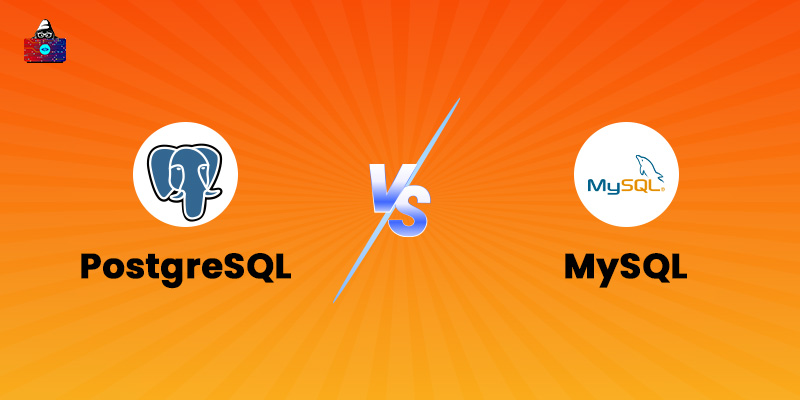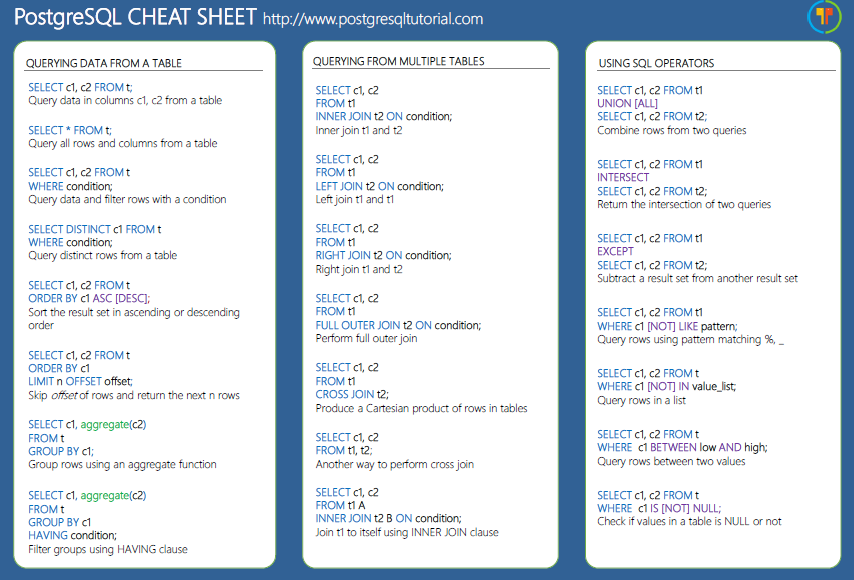
- Postgres vs mysql syntax differences full#
- Postgres vs mysql syntax differences code#
- Postgres vs mysql syntax differences free#
Postgres vs mysql syntax differences code#
Open-source license: You can avail of the PostgreSQL source code under an open-source license, giving you the freedom to modify, use, and implement it as you see fit, without any charge.It is highly scalable in both the quantity of data it can manage and in the number of simultaneous users that can be accommodated. PostgreSQL is also locale-aware for case sensitivity, sorting, and formatting. Robust extensions: PostgreSQL houses robust feature sets such as point-in-time recovery, multi-version concurrency (MVCC), tablespaces, granular access controls, and online/hot backups.

It includes most SQL: 2008 data types, including BOOLEAN, NUMERIC, INTEGER, DATE, VARCHAR, TIMESTAMP, INTERVAL, and CHAR.
Postgres vs mysql syntax differences full#
PostgreSQL is also ACID-compliant and provides full support for views, foreign keys, triggers, joins, and stored procedures, in various languages. Standards compliance and reliability: PostgreSQL’s write-ahead logging allows it to stand out as a highly fault-tolerant database.Now, let’s move on to take a look at some features of PostgreSQL that make it such an indispensable tool in the marketplace: In 2014, the PGconf ushered in a new era for PostgreSQL users.NYCPUG (New York City PostgreSQL User Group) joined the PgUS (United States PostgreSQL Association) back in 2013.In 1990, support for PL/ pgSQL and ACID compliance was added to PostgreSQL.Michael Stonebraker and his associates developed Postgres in 1986.Here’s a brief overview of PostgreSQL through the years: For instance, you can generate custom functions, define your data types, and even write code from various programming languages without having to recompile your database! History
Postgres vs mysql syntax differences free#
On top of being free and open-source, PostgreSQL is also highly extensible. PostgreSQL also boasts a rich history of supporting advanced data types along with performance optimization commonly found across its commercial database counterparts, like Microsoft SQL Server and Oracle.

PostgreSQL is used as the main data warehouse or data store for various mobile, web, analytics, and geospatial applications. This powerful and stable database management system has been backed by over thirty years of active community development that has contributed to its reputation for integrity, reliability, resilience, performance, and correctness.

PostgreSQL has established itself as an enterprise-class, advanced open-source database that supports both JSON (non-relational) and SQL (relational) querying. What Is PostgreSQL? PostgreSQL logo (Image Source: Uberconf)


 0 kommentar(er)
0 kommentar(er)
